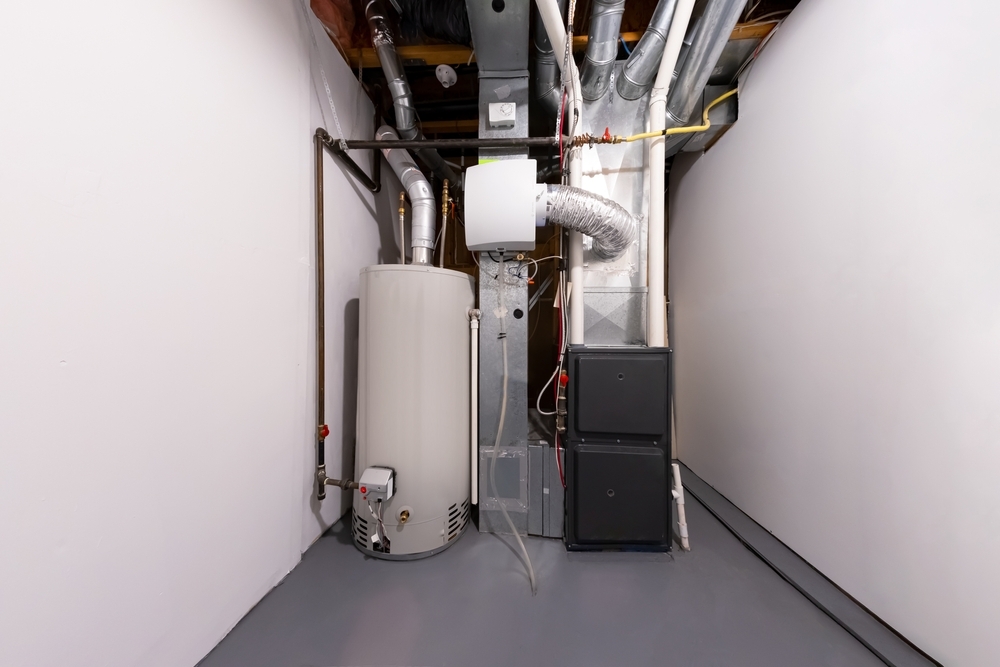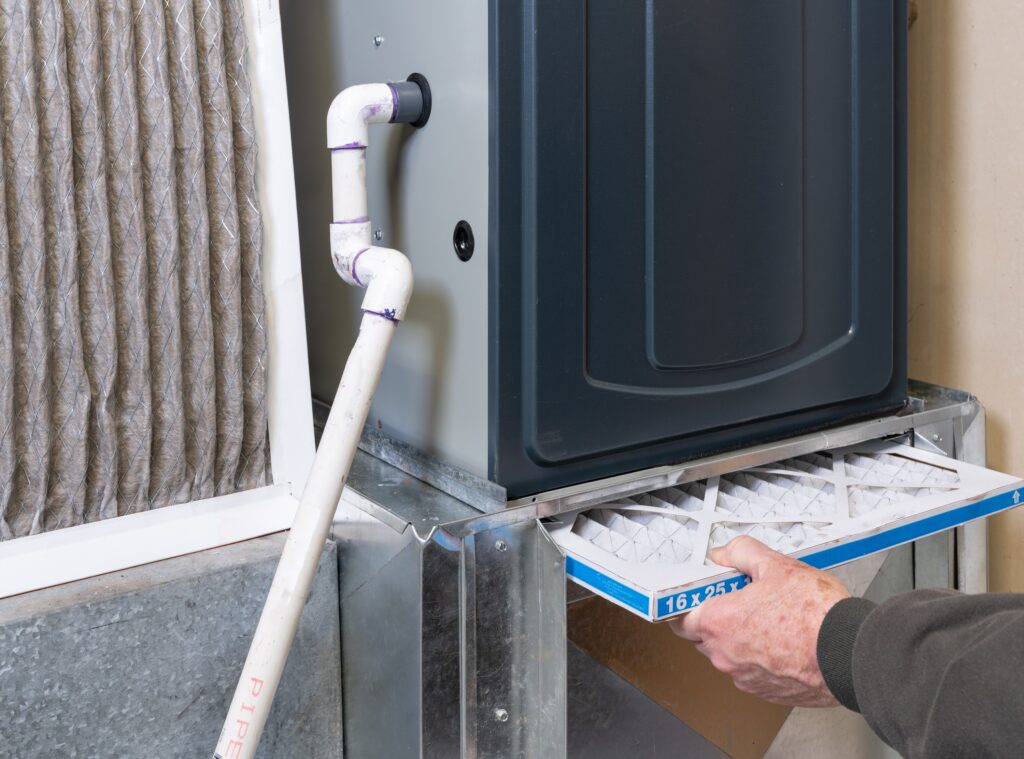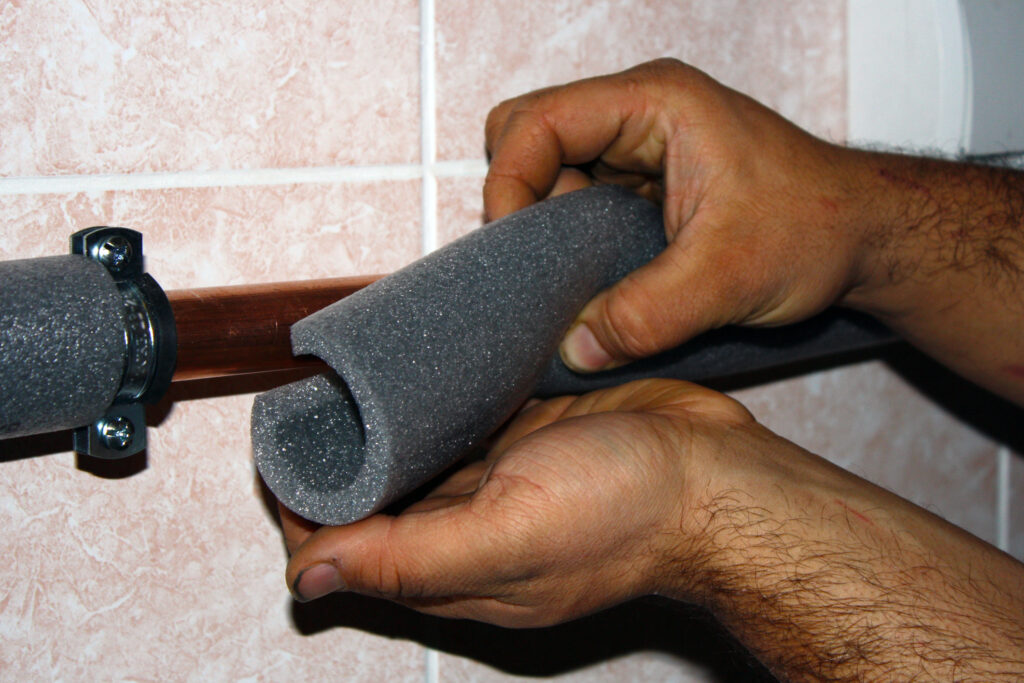
When it comes to keeping your home warm and comfortable, two primary heating systems often come to mind: furnaces and boilers. Each option has its own unique features and benefits. The system that works best for your home depends on a variety of factors, and that’s exactly what we’re going to dive into here! We want to help you make an informed decision regarding your heating system.
Furnaces: Efficient Forced-Air Heating
Furnaces are popular in modern homes where central ductwork is installed to provide forced-air heating. Let’s explore some key characteristics of furnace heating systems:
Comfort: Furnaces use forced-air heating to move warm air through ducts and vents. Air can be evenly distributed throughout your home with an efficient ductwork system and dampers. Furnaces are usually combined with central AC systems, so you get heating and cooling in a single setup.
Cost: Furnaces typically cost less upfront than boilers to replace, making them an appealing option for budget-conscious homeowners. Furnaces are often easier and less costly to maintain each year but can be more likely to need repairs.
Energy Efficiency: Modern furnaces can get up to an AFUE (Annual Fuel Utilization Efficiency) rating of 98.5%. The higher the rating, the better the furnace’s efficiency and the lower your energy bills.
Fuel Source: Furnaces can be run on natural gas, fuel oil, or propane primarily. You also have the option to use your fuel source as a backup in a dual-fuel heat pump system.
Indoor Air Quality: One drawback of furnace heating systems is that they circulate airborne pollutants through the ductwork. Burning fuel produces pollutants, including carbon monoxide, nitrogen dioxide, particles, and sulfur dioxide. Regular air filter cleaning and replacement is a must. Forced air systems may have air purifiers, air scrubbers, UV or ozone air cleaners, and specialty filters installed for improvements in air quality.
Boiler Heating Systems: Radiant Heating
Boilers offer an alternative approach to heating, with their own set of characteristics:
Comfort: Boilers provide radiant heating, which delivers warmth through radiators, baseboards, or even in-floor heating systems through the movement of hot water or steam through piping within the home. This type of heating is quiet and draft-free, offering exceptional comfort. Each area of your home can be zoned to provide heat only for rooms that require it, rather than relying on a singular thermostat.
Cost: Boilers often come with a higher upfront cost than furnaces. However, they tend to have lower operational costs over time and eventually pay for themselves.
Energy Efficiency: Boilers can get up to 95% AFUE ratings. While slightly lower than some furnaces, it’s still high enough to result in substantial energy savings. A boiler will go through fuel at a slower rate than a forced air system. Combi boilers and summer/winter hookup systems offer both home heating and domestic hot water heating within the same system.
Fuel Source: Boilers can run on natural gas, fuel oil, propane, electricity, and even wood pellets. Natural gas and fuel oil offer the best heating efficiency with natural gas being more cost effective to operate.
Indoor Air Quality: Boiler heating systems don’t circulate airborne pollutants the way forced-air systems do. As a result, you get better indoor air quality.
Choosing the Right System
There’s a lot to consider when choosing between a furnace and a boiler. In addition to cost and indoor air quality, the most important factor is the current setup as it is more costly to install ductwork or boiler piping into a home without it. Both systems are efficient and will help lower your heating costs, so the choice comes down to these preferences.
At Unique Indoor Comfort, we specialize in customized heating installation solutions and maintenance and repair services for furnaces, boilers, and heat pumps. Our experienced HVAC technicians can help you evaluate your home and recommend the best heating system option. Regardless of your choice, we want to keep your home comfortable and energy-efficient throughout the winter.
Learn more about Unique Indoor Comfort’s heating installation and maintenance services.
To schedule a consultation, contact us at (610) 825-4400. We look forward to working with you!
Interested in Learning More About Your Energy Efficiency Options?
Contact us to learn more and get started



